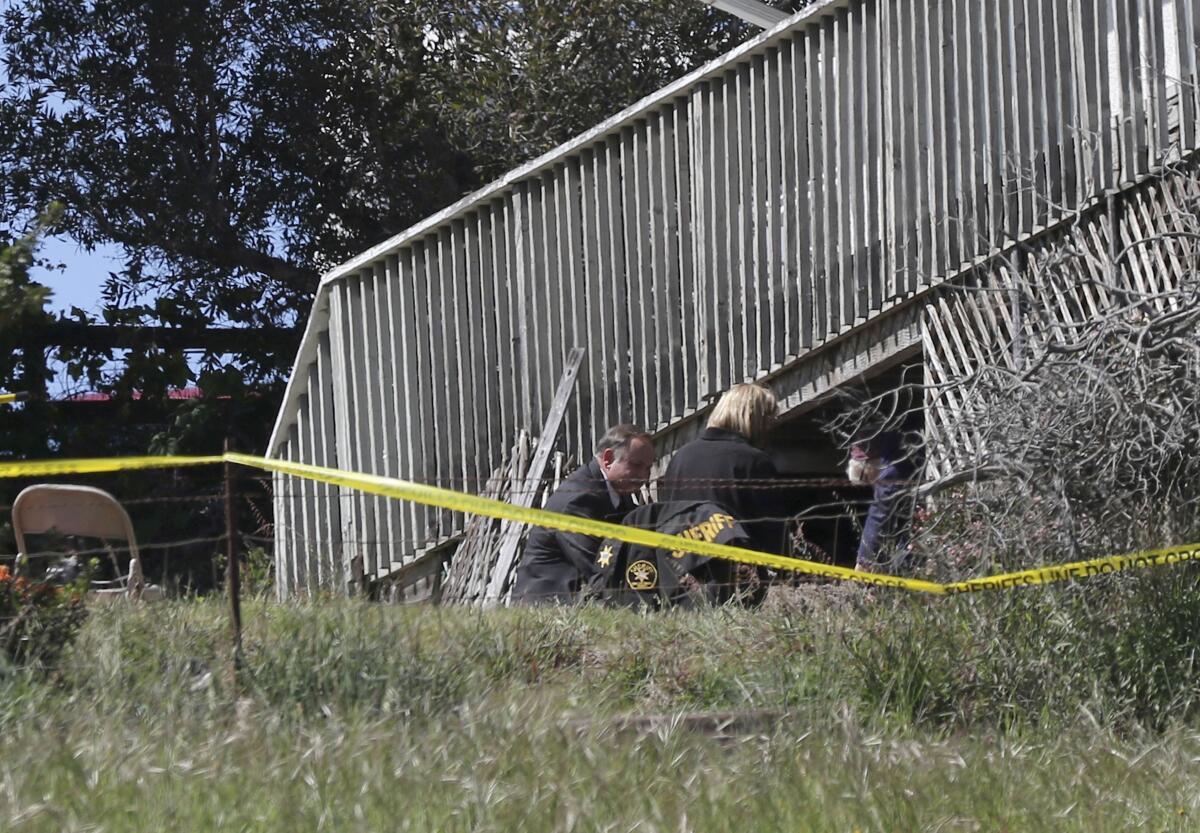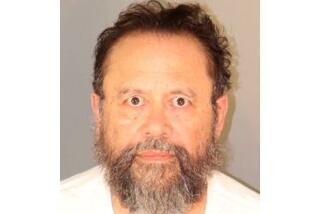Prosecutors in Kristin Smart murder case aim to add L.A. rape charges against Paul Flores

- Share via
San Luis Obispo County prosecutors are seeking to amend their murder case against Paul Flores in the 1996 disappearance of Kristin Smart to include two allegations of rape of unconscious women in the Los Angeles area.
Prosecutors will argue a motion Wednesday to amend the murder charge against Flores. They have said he killed Smart, a 19-year-old fellow student at Cal Poly San Luis Obispo, during the commission of a rape or attempted rape in his dormitory the night she vanished 25 years ago.
Authorities did not spell out the specifics of the new charges in court. But last week, a judge referenced case law in which rape cases were attached to crimes in a different county.
Los Angeles Police Capt. Jonathan Tippett, who oversees the Robbery-Homicide Division, said San Luis Obispo County prosecutors were looking at two sexual assaults that occurred in the San Pedro area where Flores lived between 2013 and 2017.
Tippett said the addition of the Los Angeles County rape charges will bolster the prosecution’s murder case against Flores and demonstrate a pattern of criminal behavior.
On Tuesday, San Luis Obispo County authorities arrested longtime suspect Paul Flores along with his father in connection with Smart’s slaying.
A judge said Monday that a number of motions will be reviewed this week ahead of a 12-day preliminary hearing scheduled for July 20.
Flores is charged with murder in the commission of a rape or attempted rape. His 80-year-old father, Ruben Flores, is charged with accessory after the fact and is accused of concealing Smart’s body after her death.
The preliminary hearing is expected to reveal what prosecutors think happened to Smart. After the arrest of the two Floreses, evidence was retrieved from below the deck of the father’s home in Arroyo Grande, prosecutors have indicated.
Smart vanished on Memorial Day weekend in 1996. She was last seen walking with Flores, a classmate, back to her room after a party. Flores was long suspected in Smart’s disappearance, but without sufficient evidence tying him to any crime, he remained free.
For decades, Flores was dogged by his ties to the Smart case. He moved to Los Angeles County’s South Bay. Detectives continued to pursue him, tapping his phones, seizing his computers and digging up his parents’ yards.

San Luis Obispo prosecutors in April said they were investigating whether Flores had sexually assaulted women in the San Pedro area, where he has lived for 15 years.
Redondo Beach police previously presented a rape case against Flores to Los Angeles County prosecutors, who ultimately declined to file charges for lack of evidence. The victim in that case did not know Flores’ identity when she fled his home after the alleged attack. But police uploaded a DNA profile taken as evidence into a law enforcement database, and a few years later it matched a name: Paul Flores.
Although Flores was not charged in that case, the DNA hit sounded alarms 200 miles north in San Luis Obispo.
Flores’ time in Los Angeles County was marked by troubling encounters with police. The alleged rape in Redondo Beach was one of multiple cases in which Flores was suspected of sexually assaulting women. He is a suspect in two recent alleged sexual assaults being investigated by the Los Angeles Police Department, authorities say.
Flores, 44, has not been charged with any sex crimes stemming from his time in Southern California. He has pleaded not guilty to Smart’s murder. Flores’ attorney has said he “denies every allegation.”
In a probation report inadvertently made public and obtained by the San Luis Obispo Tribune, a deputy district attorney wrote that dozens of women have described “sexual assaults and predatory behavior that document [Flores’] twenty-five years as a serial rapist.”
If Flores’ case goes to trial and San Luis Obispo County prosecutors are allowed to present testimony that Flores has preyed on women in the years since Smart disappeared, it could significantly broaden the scope of the trial.
Times staff writer Matthew Ormseth contributed to this report.
More to Read
Sign up for Essential California
The most important California stories and recommendations in your inbox every morning.
You may occasionally receive promotional content from the Los Angeles Times.











